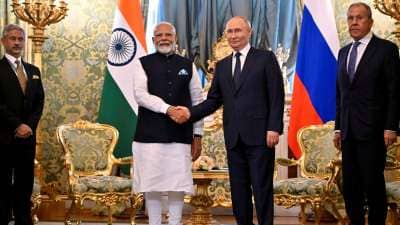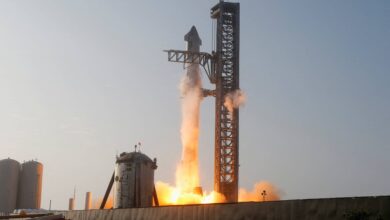
On the sidelines of the BRICS Summit in Kazan, Russia, Prime Minister Narendra Modi met Russian President Vladimir Putin and gave veritable assurances of India’s commitment to peaceful conflict resolution. The two leaders hugged as they discussed the continuing situation between Russia and Ukraine.
The summit, which also brings together Brazil, Russia, India, China, and South Africa, saw PM Modi address the interests of other countries for membership in BRICS. He said, “We have been in touch with all sides regarding the Russia-Ukraine issue. Our stance has always been that conflicts can be resolved through dialogue, and India is ready to assist in bringing about peace.”
It will likely be topped off with a ‘Kazan Declaration’, marking the formal induction of five new members into the BRICS fold.
It will be PM Modi’s second visit to Russia in 2023. It comes three months after he went to Moscow in July this year to attend the 22nd India-Russia Annual Summit. During this summit, he had a bilateral meeting with Putin and was awarded Russia’s highest State Honour, the Order of St Andrew the Apostle.
It has been commonly called a “special and privileged strategic partnership.” President Putin himself outlined that these relations have continued in development, saying, “Russian-Indian relations have the character of a particularly privileged strategic partnership.”
India remains a significant purchaser of Russian oil, which has come under criticism from the West. Still, Washington and its allies called on India to join in condemning Russia’s invasion, but thus far, there is no indication that New Delhi is going to budge from taking its oil from “wherever” it can get the best deal for its consumers.
Russia heralds the BRICS Summit as a foreign policy success against the backdrop of the West’s attempts to isolate Moscow in the wake of the Ukraine crisis. While the U.S. has dismissed the prospect of BRICS becoming a “geopolitical rival,” it is not concealing its unease at Russia’s close relationship with China, Iran, and North Korea.
According to political observers, the Kremlin’s aim in hosting the BRICS leaders, which include Brazil, India, China, and South Africa, was to show that Russia is not isolated and still commands partners and allies. The summit is meant to demonstrate “an alternative to Western pressure,” bolstering the concept of a multipolar world shifting power dynamics away from the West.



